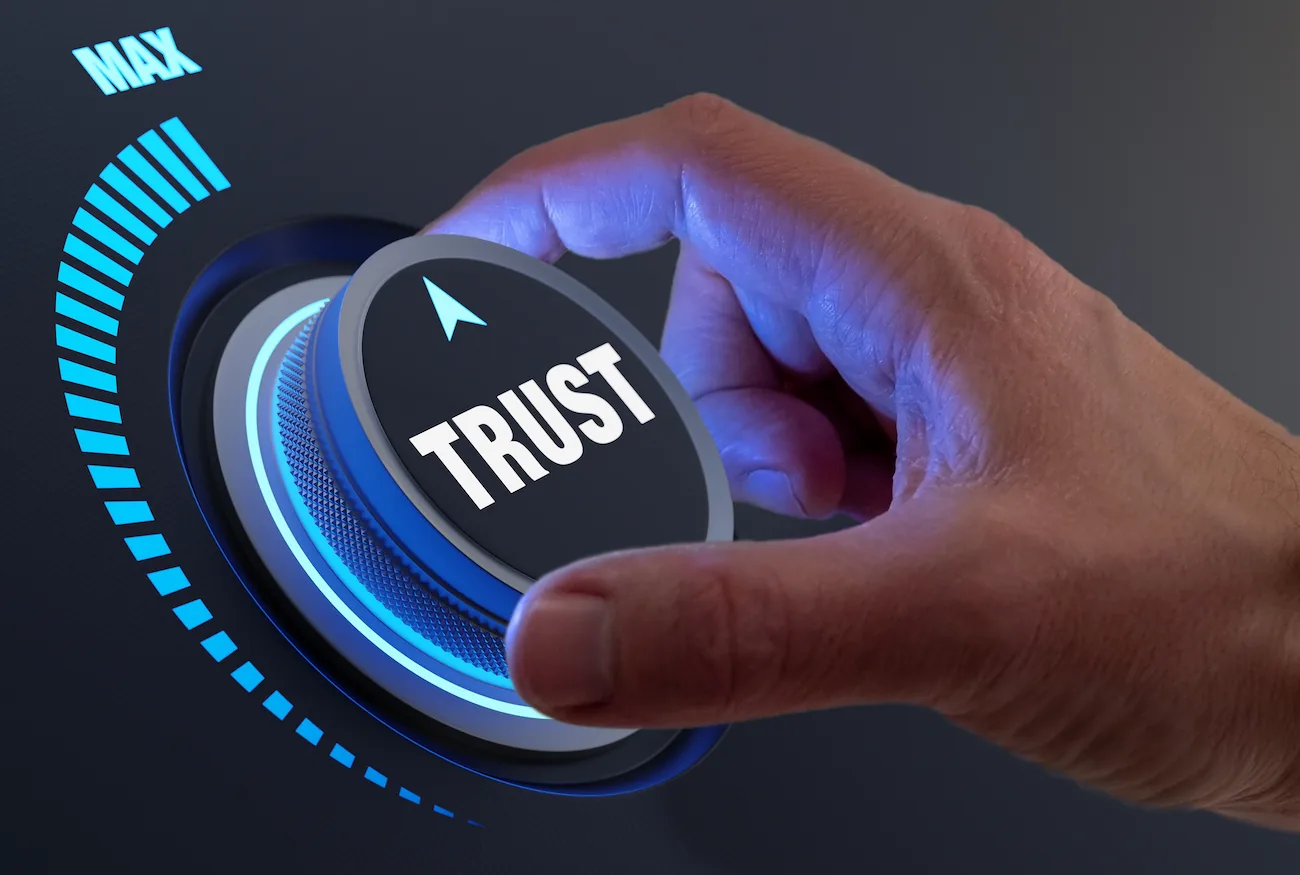Trust - the steadfast foundation
In the first part of this article, we asserted on multiple occasions that trust is something intrinsically good, without explaining why this is the case or how we might better comprehend trust.
Countless books have been filled, articles have been written, and studies have been undertaken to better comprehend the impact of trust in today’s society. We couldn’t find a single source that concluded that trust is overvalued in any culture. Quite the contrary.
Trust is probably the single most undervalued virtue in modern society. We’re often unaware of the power and potential trust vests in a society or community that has cultivated a high level of trust.
In this Forbes article, Dennis Jaffe depicts trust as follows:
There are just a few elemental forces that hold our world together. The one that’s the glue of society is called trust. Its presence cements relationships by allowing people to live and work together, feel safe and belong to a group.
Frances X. Frei and Anne Morriss also picture trust quite well in the summary of their article Begin with Trust:
Trust is the basis for almost everything we do. It’s the foundation on which our laws and contracts are built. It’s the reason we’re willing to exchange our hard-earned paychecks for goods and services, to pledge our lives to another person in marriage, and to cast a ballot for someone who will represent our interests.
And O. Yul Kwon begins the first chapter of his well crafted book Social Trust and Economic Development with the following:
As Aristotle observed 2400 years ago, human beings are by nature social creatures. Social trust is the underlying foundation of relationships among individuals, groups, and other components of a society. [...] People exercise a certain extent of trust when dealing with others, and on this basis expect certain types of responses. Without trust in others’ actions, people may have to consider too many contingencies and uncertainties to take action, destroying the foundation of community and society. Without social trust, a country’s economy cannot perform well, because transaction costs – costs in undertaking economic transactions by economic entities – would be too high. Hence, social trust is a key determinant of social and economic development as well as of human well-being.
There are many more people we could quote here, but as we can see, trust is essential in all sectors of life where interpersonal interactions occur. And the more time, money, or personal well-being is invested in a certain area of life, the more crucial trust is in sustaining that area over time.
Here are a few examples of areas of life where trust is essential:
Within relationships: Trust is one of the most important aspects of relationships
Within the workplace: Why trust is a critical success factor for businesses
Trust in the media: Mainstream media is losing viewers rapidly because of distrust
In the government: Why the people don’t trust the government (especially in the U.S.)
Even COVID-19 vaccinations: COVID-19 vaccine hesitancy is primarily rooted in institutional mistrust
However, one area of life necessitates an even higher level of trust than most others, and that is the financial sector, because it requires ‘deep trust’ in the operators of the respective financial system.
Unfortunately, the entire fiat financial sector, by its very nature, relies on blind trust (as explained in Perspectives on trust and Causes of the breaches of trust), which leads to distrust rather than trust.
Because the need for trust in a money system cannot be lessened or eliminated, we are left with only one choice: the conscious and active maximisation of good trust.

But if trust is the main problem with our current monetary systems, why should it be maximised?
Firstly, the issue isn’t trust per se, but rather the dependency on blind trust (see Perspectives on trust). Secondly, we only really have a problem with institutional trust but not with interpersonal trust (see Social trust).
Therefore, a trust-based system only has to avoid institutional trust (which caused the unfavourable blind trust dependency), but can make use of interpersonal trust if this were advantageous. And, as we’ve seen, trust is clearly beneficial for any system that involves a lot of interpersonal interactions. As a result, we should absolutely make use of it (or at least explore if a trust-based system is superior to “trustless” systems).
The solution to the trust problem is thereby conscious and active maximisation of interpersonal trust.